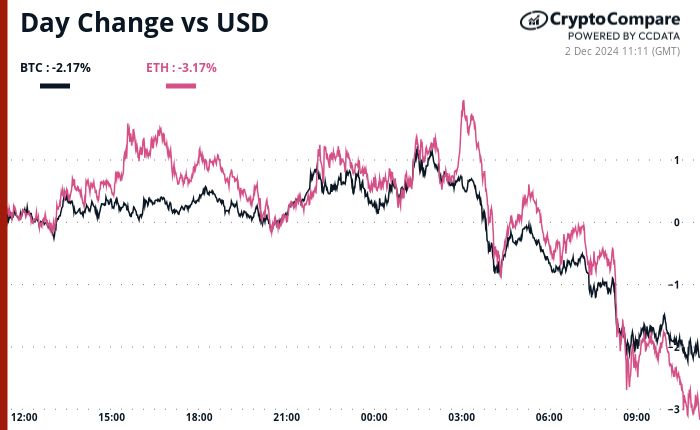When the SEC filed a federal lawsuit Monday against crypto influencer Ian Balina for his failure to register a cryptocurrency as a security before launching a 2018 initial coin offering (ICO), everything at first appeared run-of-the-mill: the SEC has, for years, filed civil suits against individuals and organizations for rolling out unregistered ICOs.
Eagle-eyed observers then read a little further into the fine print.
In a bold and potentially unprecedented move buried in the lawsuit’s 69th paragraph, the SEC today claimed it had the right to sue Balina not only because his case concerns transactions made in the United States, but also because, essentially, the entire Ethereum network falls under the US government’s purview.
In its complaint, the regulator noted that the ETH sent to Balina was “validated by a network of nodes on the Ethereum blockchain, which are clustered more densely in the United States than in any other country.” The SEC then concludes: “As a result, those transactions took place in the United States.”
The SEC appears to be suggesting that, because more of Ethereum’s validating nodes currently operate in the United States than in any other country, all Ethereum transactions globally should be considered of American origin. Currently, 45.85% of all Ethereum nodes operate from the United States, according to Etherscan. The second-greatest density of nodes is in Germany, with only 19%, by comparison.
“Saying that enables [the SEC] to characterize doing business on the Ethereum blockchain, as doing business on a US securities exchange,” University of Kentucky law professor Brian Fyre told Decrypt. “Which, from their regulatory perspective, is convenient. It makes things so much simpler.”
If the SEC were to successfully classify activity on Ethereum as akin to that on an American securities exchange, it would amount to the regulatory body laying claim to jurisdiction over all activity on the ostensibly decentralized Ethereum network. Such a development would constitute a major escalation in the SEC’s role in overseeing both Ethereum, specifically—where the vast majority of NFT and DeFi activity takes place—and crypto as a whole.
Fyre noted that the language of today’s complaint bears no legal weight, and due to the nature of the SEC’s suit against Balina, the court in this case is unlikely to weigh in on this specific issue. But that doesn’t mean the statement holds no significance.
“I think they may be trying to get their vision of what Ethereum is, and how it works, out into the judicial ecosystem,” Fyre told Decrypt. “It’s the SEC saying, ‘This entire body of financial activity is within the scope of the stuff that we regulate, and therefore we’re going to regulate all of it.’”
Fyre considers such a full-throated claim to jurisdiction over the entire Ethereum ecosystem to be unprecedented.
“It’s the first time I’ve seen the SEC really lay out how it understands the…
Read More: decrypt.co









 Bitcoin
Bitcoin  Ethereum
Ethereum  XRP
XRP  Tether
Tether  Solana
Solana  Dogecoin
Dogecoin  Cardano
Cardano  USDC
USDC  Lido Staked Ether
Lido Staked Ether  Avalanche
Avalanche  TRON
TRON  Shiba Inu
Shiba Inu  Stellar
Stellar  Toncoin
Toncoin  Wrapped stETH
Wrapped stETH  Polkadot
Polkadot  Chainlink
Chainlink  Wrapped Bitcoin
Wrapped Bitcoin  Hedera
Hedera  Bitcoin Cash
Bitcoin Cash  WETH
WETH  Sui
Sui  Litecoin
Litecoin  Pepe
Pepe  Uniswap
Uniswap  NEAR Protocol
NEAR Protocol  LEO Token
LEO Token  Wrapped eETH
Wrapped eETH  Aptos
Aptos  Internet Computer
Internet Computer  USDS
USDS  POL (ex-MATIC)
POL (ex-MATIC)  Cronos
Cronos  Ethereum Classic
Ethereum Classic  Artificial Superintelligence Alliance
Artificial Superintelligence Alliance  Ethena USDe
Ethena USDe  Bittensor
Bittensor  Render
Render  Filecoin
Filecoin  Algorand
Algorand  Arbitrum
Arbitrum  Aave
Aave  Cosmos Hub
Cosmos Hub  Stacks
Stacks  Dai
Dai  WhiteBIT Coin
WhiteBIT Coin  Immutable
Immutable